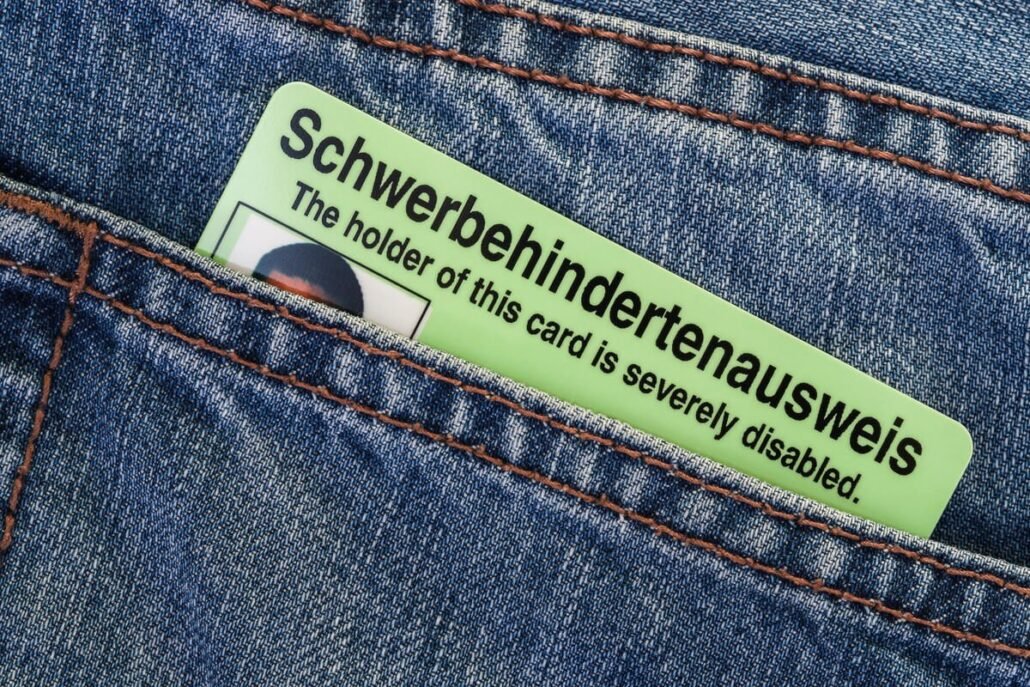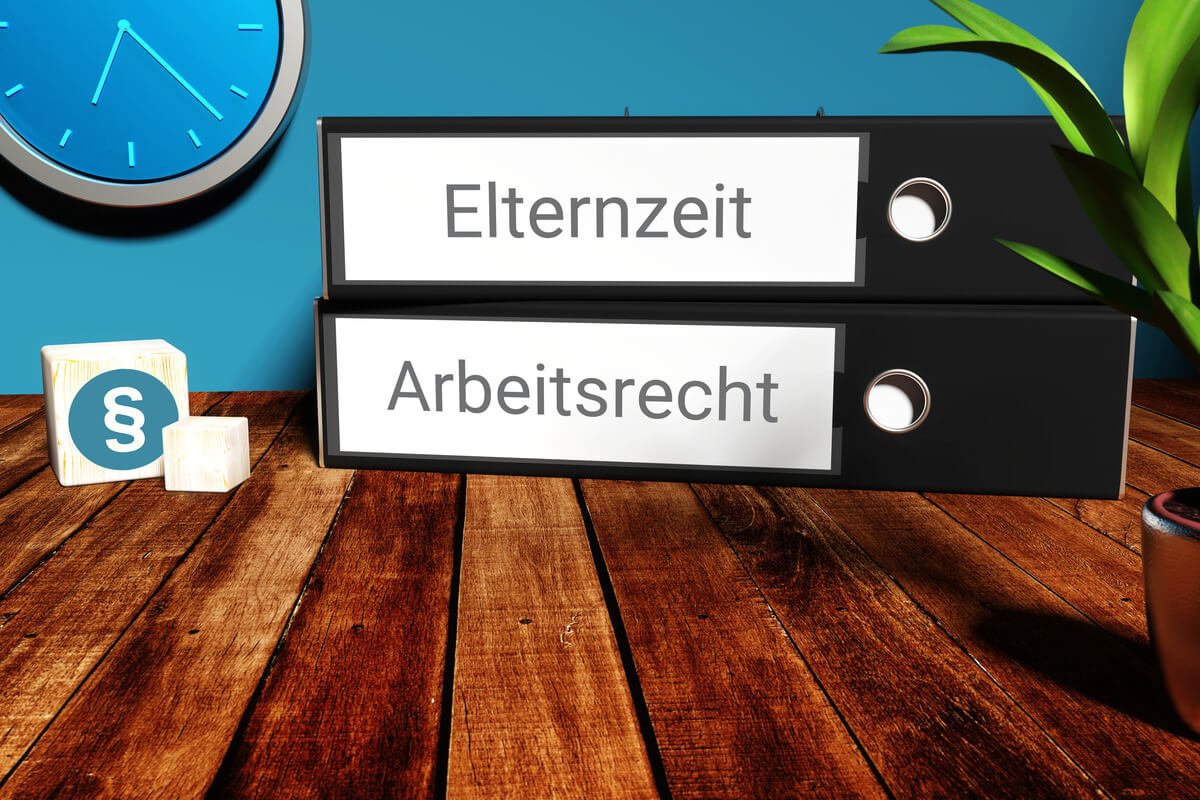

People with severe disabilities benefit from special protection due to their particular vulnerability. They are subject to a special dismissal protection. Although dismissal is possible, it requires approval from the Integration Office. Otherwise, the dismissal is invalid. In this article, we explain under what conditions special dismissal protection applies, the procedure before the Integration Office, and which aspects must be considered when dismissing employees with disabilities.

Calculate severance pay now free of charge
- Calculate potential severance payment amount
- Strategy for negotiating a fair severance payment
- Find suitable lawyers for labour law
Key takeaways:
- Employees with severe disabilities enjoy special protection against dismissal: Employers may dismiss them, but only with prior approval from the Integration Office.
- The special protection applies to severely disabled employees who have a certified degree of disability (GdB) of at least 50% at the time of dismissal. Those with a GdB between 30% and 50% may apply to be granted equal status. In addition, the employer must have knowledge of the disability.
- If the dismissal occurs without the required approval, it is invalid solely for that reason. The employee must file a claim for protection against dismissal within three weeks.
- If the dismissal occurs with the approval of the Integration Office, the employee can file an objection to the decision and simultaneously bring a claim for protection against dismissal.
Contents
Special protection against dismissal for employees with disabilities
Employees with severe disabilities enjoy special protection against dismissal under Section 168 of the German Social Code IX. This protection applies alongside the general rules under the Dismissal Protection Act (KSchG). Before giving notice, the employer must obtain prior approval from the Integration Office.
Without this approval, the dismissal is usually invalid.
This applies to both ordinary and extraordinary dismissals, including termination with changes to contract terms.
If the employer terminates the employment without the approval of the Integration Office, the dismissal is automatically invalid.
Free initial consultation with a lawyer
Quick callback after 1 to 2 hours for a free initial consultation with a lawyer
Requirements for special dismissal protection
Special dismissal protection for persons with severe disabilities applies only when the following conditions are met:
First condition: The employee must be severely disabled
The employee must be officially classified as severely disabled, meaning:
- They must have a certified degree of disability (GdB) of at least 50%, or
- They must be granted equal status to a severely disabled person, i.e., have a GdB of at least 30%.
- At the time of dismissal, the disability must either (1) be confirmed by a decision from the competent authority, or (2) be clearly apparent, or (3) the employee must have submitted a formal application at least three weeks before receiving the notice of termination (as per case law).
Second condition: The employer must be aware of the disability
The employer must be aware of the severe disability or the application for equal status at the time of dismissal.
If the disability exists and the employer has knowledge of it, special dismissal protection applies to all employees—regardless of working hours, company size, trainee status, or managerial level.
Calculate your severance payment
Calculate the settlement amount for your individual case in 2 minutes
Exceptions to special dismissal protection
The employer is not required to obtain approval in the following cases: when concluding a mutual termination agreement with a severely disabled employee, in the event of a resignation by the disabled employee, or when a fixed-term employment contract naturally expires.
Furthermore, according to Section 173 SGB IX, the special protection does not apply in the following situations:
- The employment relationship had existed for less than six months at the time of dismissal.
- The status as a severely disabled person was not proven at the time of dismissal.
- The competent authority could not confirm the disability status due to the employee’s lack of cooperation.
- An application for disability recognition or equal status was rejected – even if an appeal or lawsuit was filed against that decision.
- The employee is over the age of 58 and is entitled to a severance payment under a social compensation plan.
Free initial consultation with a lawyer
Quick callback after 1 to 2 hours for a free initial consultation with a lawyer
Procedure before the Integration Office
The Integration Office does not assess whether a dismissal complies with general labor law. It only reviews aspects specifically related to the special protection needs of the severely disabled employee. The Integration Office aims to mitigate or prevent disability-related disadvantages and should always strive for a mutual settlement.
- To do this, the Integration Office must obtain statements from the works council, staff council, and the representative body for disabled employees. The employee must also be heard (§ 170 SGB IX).
- In the case of an ordinary dismissal, the Integration Office should issue a decision within one month. Exceptions apply only in special cases. Employers can accelerate the process by collecting the required statements in advance and submitting them with the application. Nonetheless, a personal hearing of the affected employee by the Integration Office is mandatory.
- In the case of an extraordinary (immediate) dismissal, the Integration Office must decide within two weeks. If it fails to do so, approval is considered granted by default (§ 174 SGB IX).
The Integration Office must notify both the employer and the employee of its decision. Both parties have the right to file an objection or take legal action afterward.
Legal steps following dismissal of a severely disabled employee
If the employee was dismissed without approval from the Integration Office, the dismissal is invalid on that ground alone. The employee may file a claim for protection against dismissal within three weeks to have the invalidity confirmed by the labor court. This is not necessary if the employer withdraws the dismissal and the employee agrees—or if both parties sign a termination agreement afterward. If the employee was dismissed with the approval of the Integration Office, they have the right to file an objection against the Integration Office’s decision. At the same time, they may file a claim for protection against dismissal with the labor court to challenge the termination under employment law.

Calculate severance pay now free of charge
- Calculate potential severance payment amount
- Strategy for negotiating a fair severance payment
- Find suitable lawyers for labour law
Frequently Asked Questions (FAQ)

Free initial consultation with a specialist lawyer
- Free initial consultation with a lawyer
- Quick callback after 1 to 2 hours
- Strategy for negotiating the severance pay
- Special protection against dismissal: What needs to be considered?
- Unfairly dismissed? How the Employment Protection Act can help you
- Job termination agreement – 5 items to watch
- Termination without notice in Germany: requirements and consequences
- Action for unfair dismissal: When is it worth taking legal action?
- Termination of fixed-term employment contract: requirements, deadlines & tips




